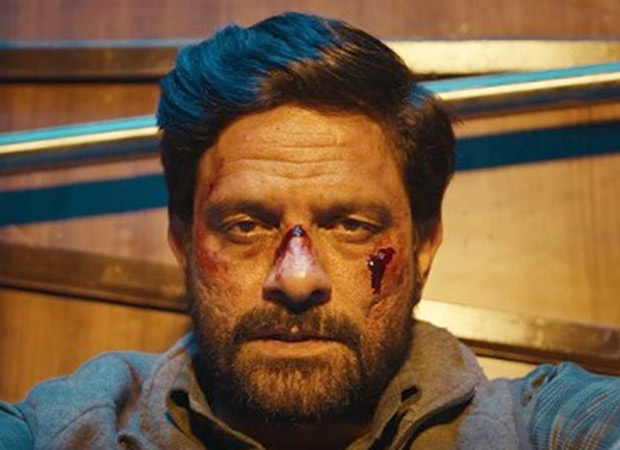ICC prosecutor urges world to ‘stem the bleeding’ in Sudan before region spins out of control
NEW YORK CITY: Violence in Sudan has continued to escalate in the past six months, the International Criminal Court’s prosecutor said on Monday, with reports of rapes, crimes against children and persecution on a massive scale.
“Terror has become a common currency,” Karim Khan told a meeting of the UN Security Council, “and the terror is not felt by the people with guns but by people who are running, very often with nothing on their feet, hungry.”
War between rival military factions has been raging in Sudan for more than a year. Since it began in April 2023, about 19,000 people have been killed. More than 10 million are displaced within the country and more than 2 million have fled to neighboring countries as refugees, making it the largest displacement crisis in the world.
The country is on the brink of famine as a severe food crisis looms, with many families reportedly already often going days without food.
Khan said the ICC is prioritizing investigations into allegations of crimes against, and affecting, children, and gender crimes. These “profound human rights abuses, mass violations of personal dignity” continue to be fueled by the “provision of arms, financial support from various sectors, and political triangulations that lead to inaction by the international community,” he added.
His comments came during the latest semi-annual briefing to the Security Council on the court’s Darfur-related activities. Almost 20 years after the council referred the situation in Darfur to the ICC, arrest warrants issued by the court against former president Omar Al-Bashir, former ministers Ahmad Mohammed Harun and Abdel Raheem Mohammed Hussein, and the former commander-in-chief of the Justice and Equality Movement, Abdallah Banda Abakaer Nourain, remain outstanding.
Khan said that such failures to execute arrest warrants for indicted individuals have contributed to several unwelcome consequences, including “the climate of impunity and the outbreak of violence that commenced in April (2023), and that continues today, (in which) belligerents think they can get away with murder and rape; the feeling that the bandwidth of the (Security) Council, the bandwidth of states, is too limited, it’s too preoccupied with other epicenters of conflict, hot wars in other parts of the world; that we’ve lost sight of the plight of the people of Darfur, we have somehow forgotten our responsibilities under the UN Charter; (and) the feeling that Darfur or Sudan is a law-free zone in which people can act with abandon, based upon their worst proclivities, their worst base instincts, the politics of hate and power, the opportunities to profit.”
He called on council members to “back in substance” the call for justice.
In comments directed toward both of the warring factions, the Sudanese Armed Forces and the Rapid Support Forces, as well as “those who are funding them, supplying them with weapons, giving orders, gaining certain advantages,” Khan said his office is investigating and “using our resources as effectively as we can to make sure that the events since April of last year are subjected to the principle of international humanitarian law and the imperative that every human life must be seen to have equal value.”
He said that after “a great deal of difficulty,” Sudanese authorities are finally cooperating with ICC investigators who have been able to enter Port Sudan, collect evidence and engage with Gen. Abdel Fattah Al-Burhan, commander of the Sudanese Armed Forces and the country’s de facto leader.
“But one swallow does not a summer make,” Khan added as he underscored the need for “continuous, deepening cooperation with the Sudanese Armed Forces, with Gen. Al-Burhan and his government moving forward.”
He said that “one concrete way in which that commitment to accountability, and this lack of tolerance for impunity, can be evidenced is by properly enforcing court orders,” including the arrest of former minister Harun and delivering him to the court.
However, Khan said that the most recent significant efforts to engage with the leadership of the Rapid Support Forces have so far proved to be fruitless.
Meanwhile, he said, ICC investigators have visited neighboring Chad several times and collected “very valuable testimonial evidence” from displaced Sudanese citizens living there as refugees.
They have met representatives of Sudanese civil society in Chad, South Sudan, the Central African Republic and Europe, he added, “to get and preserve their accounts and their stories, to analyze it and to piece it together, to see what crimes, if any, it shows and who is responsible for the hell on earth that is being unleashed so stubbornly, so persistently against the people of Darfur.”
Khan said his office has used technological tools to gather and piece together various forms of evidence from phones, videos and audio recordings, and that this is “proving to be extremely critical to pierce the veil of impunity.”
The collective efforts by investigators, analysts, lawyers and members of civil society have resulted in significant progress being made, he added, and he expressed hope that he will soon be able to announce that arrest warrants have been requested for individuals believed to be most responsible for the crimes in the country.
Meanwhile, Khan sounded a broader alarm over what he described as “a trapezium of chaos in that part of the continent.”
He continued: “If one draws a line from the Mediterranean of Libya, down to the Red Sea of Sudan, and then draws a line to Sub-Saharan Africa, and then all the way to the Atlantic, with Boko Haram causing instability, chaos and suffering in Nigeria, and then back to Sudan, (we) see the map and the countries that risk being unsettled or destabilized by this concentration of chaos and suffering.”
He warned the members of the Security Council that in addition to the concerns about the rights of the people of Darfur, “we’re reaching a tipping point in which a Pandora’s box of ethnic, racial, religious, sectarian (and) commercial interests will be unleashed.”
He added that “they will no longer be susceptible to the political powers of the great states of the world, or even of this council. It requires some real action now to stem the bleeding … in Sudan.”







